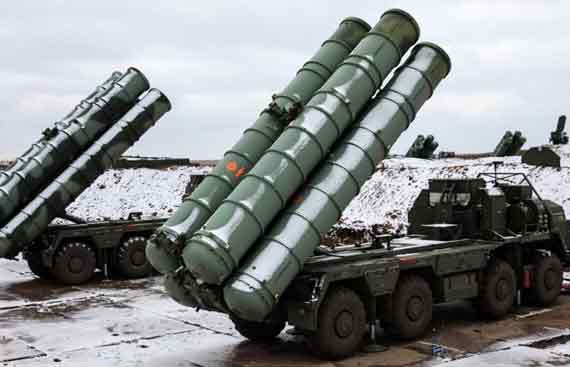The US House Votes to Renounce CAATSA Sanctions on the Indian S-400 Missile Deal with Russia

With the new amendment proposed in the NDAA, the US government decides to grant a CAATSA sanctions waiver to India over the S-400 missile deal with Russia
India’s purchase of the S-400 missile defence system from Russia has invoked a crucial discussion in the US. The US has always been upset at India's reliance on Russian defence systems, which has now even grown with the delivery of the S-400 missile. However, the US House of Representatives passed a legislative amendment by voice vote that approves a waiver to India against the severe actions of the Countering America’s Adversaries Through Sanctions Act (CAATSA) sanctions in order to prevent aggressors like China.
The amendment was passed on Thursday in a single unit amendment during floor consideration of the National Defence Authorisation Act (NDAA). During his speech on the NDAA amendment, Ro Khanna, an Indian-American Congressman, remarked on the significance of the US-India relationship. The amendment, which was written by him, urges the Biden administration to exercise its power to grant India a CAATSA waiver to help deter aggressors like China.
The CAATSA law passed in 2017 empowered the US government as a result of Russia’s annexation of Crimea in 2014 and its alleged interference in the 2016 US presidential elections. It is a strict law to impose penalties on any nation engaging in transactions involving defence equipment and intelligence sectors of Russia.
However, the amendment is a significant conclusion that was passed on a bipartisan basis, broadly focusing on the US-Indian relationship and defence aid against Chinese aggression. Although the US has imposed CAATSA sanctions on Turkey, there aren’t any decisions on waivers to India under the law regarding S-400 missile purchases from Russia. Despite warnings from the then-Trump government, India has already signed a USD five billion deal with Russia. The Ministry of External Affairs stated that India’s defence acquisitions are solely based on its national security interests and pursuing an independent foreign policy.
The legislation also stated that the US-India Initiative on Critical and Emerging Technologies (ICET) is essential to enhance the relationship between the countries' different sectors. It also addresses the advances in artificial intelligence, quantum computing, biotechnology, aerospace and semiconductor manufacturing. Therefore, maintaining harmonious relationships is crucial for both nations to nurture technological developments which continue to outperform Russian and Chinese technology.
